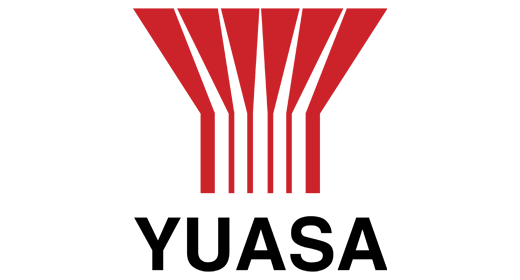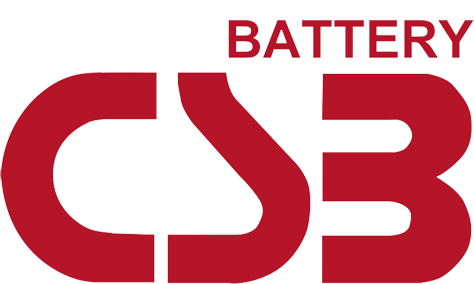Uninterrupted Success: Why Facilities Can't Afford to Overlook Backup Power
Welcome to our deep dive into the world of uninterruptible power supply systems and their integral role in facilities management across. Imagine, for a moment, a bustling hospital, a packed commercial complex, or an industrious factory. What is one thing that they all cannot afford to lose? The answer is power. A sudden power cut can not only bring operations to a standstill but also pose severe risks to their essential equipment and services.
Facilities management has a paramount duty to ensure 24/7 power availability, and this is where uninterruptible power supply systems step into the limelight. This article seeks to enhance your understanding of the vital role these systems plays, how they operate, their adoption across UK facilities management, challenges faced during their implementation, and their broader impacts. So, make yourself comfortable as we untangle the complexities of these unsung heroes of the facilities management sector.
Significance of Uninterruptible Power Supply Systems in Facilities Management
In a world increasingly reliant on digitisation and electronic systems, the need for steady, uninterrupted power has never been as critical as it is today. Welcome to our deep-dive into the heart of energy assuredness - the Uninterruptible Power Supply (UPS) systems. These underpin our modern facilities and play an unsung, but vital role in facilities management.
Need for Uninterrupted Power
As businesses flourish in the digital era, so does their dependency on electrically powered devices. However, along with this fast-paced growth comes an increased vulnerability to power interruptions. Here's why uninterrupted power is more than just an 'optional extra' for your facility:
- Constant operation: For many organisations, downtime is expensive. UPS systems ensure that equipment keeps working even during power fluctuations or outages.
- Data protection: Sudden power failures can lead to data loss or corruption. By providing a buffer against these interruptions, UPS systems protect your valuable digital substance.
- Employee productivity: An unexpected power loss means abrupt stoppage of work. UPS systems guarantee that your staff can continue their tasks without interruption, thus preserving productivity.
Protecting Vital Equipment
The heart of any facility management lies in its equipment range. Electronic devices, computers, heating or cooling systems, lights - they all require a consistent power supply. A slight deviation in voltage can create havoc.
So, how does a UPS help here?
- Voltage regulation: UPS systems peremptorily even out the power, making sure that your equipment only receives the right amount of voltage.
- Longevity of equipment: Regular instances of power surges or dips can shorten equipment life. UPS systems can help prevent these occurrences, ensuring a long operational life for your devices.
- Saving repair costs: Any damage to the equipment due to power abnormalities can be expensive to fix. A UPS system can save these unforeseen expenses by providing safeguarding against power extremes.
Risk Management
As we manage facilities, it's prudent to be prepared for any eventuality, particularly when power is concerned. From thunderstorms to technical glitches, power disturbances can have multiple sources. A strategic approach to handle such threats is UPS deployment. Be it a small organisation or a large enterprise, using UPS systems can help in managing such potential risks as:
- Decision-making time: A UPS provides that essential buffer time to switch to backup power or shut down systems safely.
- Business Continuity: With UPS-enabled resilience, your company can operate seamlessly. This reliability is key to risk management.
- Customer Retention: Outages can disrupt services, which can lead to losing customers. Prevent this with UPS systems at the helm, assuring your customers of uninterrupted services.
Embracing Uninterruptible Power Supply systems is not just a smart move, but a necessary one in today's digital era. In the grand scheme of facilities management, UPS systems afford more than power stability - they offer peace of mind. This, surely, is an investment worth making.
Operation of Uninterruptible Power Supply Systems
As steadfast proponents of business continuity, we understand that nothing stalls productivity quite as abruptly as a sudden power outage. Delays, data loss, and financial impact hover like ominous spectres, casting their dark shadows upon our bustling operations. Peace of mind lies in having a reliable backup plan - and this is where Uninterruptible Power Supply systems (UPS) step in.
Power Supply Basics
Think of a power supply as the heartbeat of your tech infrastructure. It's the lifeline that pumps electricity into the veins of your devices, thus allowing them to perform their designated tasks smoothly. A consistent, steady surge of power is the key to optimal device performance. But what happens when this steady pulse falters due to power inconsistencies or complete losses?
This is where Uninterruptible Power Supply systems come to the rescue.
Roles of Uninterruptible Power Supply Systems
More than just power strips, UPS systems provide several pivotal layers of protection:
- They offer instant power protection by supplying electricity through their inbuilt batteries in the event of a power outage.
- While the power sources might be interrupted, UPS systems ensure that your work remains uninterrupted by providing you with enough power backup to save your work and safely shut down your system.
- Beyond safeguarding against blackouts, UPS systems also protect against power surges that can cause severe damage to your electronic devices.
Simply put, UPS systems are the superheroes of power supply; their role is to put up a strong fight against potentially destructive power inconsistencies.
Typical Components of an Uninterruptible Power Supply System
To understand how these superheroes function, let's dive into what's under the hood: the main components that make up a UPS system.
- The rectifier converts the incoming AC power into DC power.
- The battery stores this DC power, making it available for use in the event of a power loss.
- The inverter converts the DC power back into AC power for your devices.
- The bypass switch provides a fail-safe by automatically routing power around the rectifier and inverter if there's a failure within the UPS.
- The controller manages the entire operation of the UPS, ensuring optimum performance at all times.
Remember, the effectiveness of any strategy lies in its execution. Appropriate, well-maintained UPS systems can be the difference between smooth continuity and sudden halts in operations. So, arm your business with a robust power protection plan and ensure that no blackout, brownout, or power surge throws a wrench in your operation's gears. Aligning yourself with the right uninterrupted power supply systems is more than a smart move; it's a business-saving decision.

Adoption of Uninterruptible Power Supply Systems in UK Facilities Management
In recent years, the frequency of power interruptions and the mounting reliance on digital technologies have driven the surge in demand for Uninterruptible Power Supply (UPS) systems across facilities in the UK. Implementing an effective infrastructure that ensures consistent and reliable power supply is now a fundamental need for organisations. UPS systems have evolved as an excellent solution to these challenges, leading to increased efficiency, sustainability, and profitability.
Rise of Power Backup Systems
The UPS systems are prevailing in the market due to their potential to assuage downtime, preventive maintenance capabilities, and ensure power continuity. This rise in power backup adoption can be attributed to several aspects:
- Improved network reliability: Ensuring maximum uptime and mitigating power quality issues is vital for organisations to run their operations smoothly. UPS systems offer a fail-safe option that guarantees a seamless power supply to the network, even during blackouts.
- Cost savings: A well-designed UPS system can result in substantial savings for a business over time. It minimises costs associated with data loss, downtime, and equipment damages.
- Increased safety: An efficient power backup system brings a layer of protection to the workforce equipment and crucial business data.
By employing UPS systems, businesses can significantly reduce their inherent vulnerability to power disruptions, which, in turn, leads to more resilience and operational stability.
Pros of Power Backup Adoption
Adopting a UPS system comes with a bounty of benefits for UK facilities management, including but not limited to:
- Reliability: Power backup systems maintain a continuous flow of power to critical equipment and data during periods of power outages.
- Flexibility: Modern UPS systems offer scalable solutions that can grow with the needs of your business.
- Energy Efficiency: Innovative technology within these systems can optimise power consumption, thereby contributing to sustainability initiatives.
Minimal disruptions and efficient performance make power backup systems a must-have for modern UK facility management.
Observations on UK Facilities Management
UK facilities management is continually evolving, dealing with emerging operational complexities, technological advancements, and infrastructural demands. In this vein, the adoption of UPS systems has been a welcome development. Besides ensuring consistent operations during power interruptions, it aids facilities' managers in strategic planning, optimising resources, and ensuring that facilities are always operating at peak performance.
However, it's crucial that every choice in UPS systems is made strategically. As we've seen, the impacts are far-reaching, affecting both operational efficiency and business continuity. By understanding the different UPS systems available in the market today, their benefits and limitations, facility managers can better align their power backup strategy with their operational needs and expectations.
Adoption of Uninterruptible Power Supply systems in the UK Facilities Management sector is therefore crucial, not only for contingency planning but also for long-term operational success.
Challenges and Solutions in Implementing Uninterruptible Power Supply Systems
Attempting to maintain a steady stream of business operations necessitates the implementation of an uninterruptible power supply (UPS) system. However, ensuring a seamless implementation and operation can be as complex as it seems straightforward. From technical issues to financial burdens, several concerns tend to pop up.
Typical Challenges
The first hurdle comes in the shape of hardware challenges. These can range from having incorrect or inadequate hardware, which fails to meet the electrical needs of your infrastructure, to dealing with outdated UPS units that cannot handle modern applications.
- Inaccurate Calibration: The device may not take into account the power load, causing unnecessary power trips.
- Costly Upgrades: Upgrading from an obsolete model can prove to be financially draining, particularly for small to medium-sized businesses (SMBs).
- Improper installation: A poorly installed system can lead to disastrous consequences like short circuits or total system failure.
Apart from the hardware issues, UPS systems can also present software problems, such as:
- Compatibility Issues: The UPS system may not be compatible with the existing software infrastructure.
- Complex Interfaces: Some UPS applications may be hard for non-tech personnel to comprehend and operate.
- Lack of Future-Proofing: UPS software needs periodic updates to stay compatible with new tech advancements.
Overcoming Barriers
While these problems may appear daunting, it's not all doom and gloom. Proactive addressing of the issues can lead to seamless operations.
- Comprehensive Research: Conduct a thorough investigation before purchasing a UPS system. Understand your power load demands and pick a device that can adequately serve them.
- Plan your Budget: Be aware that an upgrade may be needed down the line. Set aside a fund for such eventualities.
- Hire Professionals: Get a professional to install your UPS system. They have the necessary knowledge and experience to prevent errors.
- Regular Updates: Ensure your UPS system software is regularly updated to avert compatibility issues and security breaches.
Future Improvements
Despite their current challenges, UPS systems continue to be at the forefront of ensuring business continuity. As technology develops, we foresee more sophisticated and user-friendly features being integrated into future UPS models, enabling them to adapt quickly to changing IT landscapes.
Imagine a UPS system that can predict potential pitfalls before they happen, or one that automatically adjusts the power load as per the demand without any human intervention. The possibilities are endless, and the future seems bright indeed for uninterruptible power supply systems.
Without a doubt, implementing UPS systems can be a challenging task. Yet, with the right approach, you can overcome these barriers and ensure your business runs smoothly, regardless of the power situation. As we move into an era of technological advancements, UPS systems' value in enterprises is set to only rise, reinforcing their necessity in a technology-dependent world.
The Impact of Uninterruptible Power Supply Systems on UK Facilities Management
An Uninterruptible Power Supply, often referred to as UPS, is essentially a device that ensures a constant supply of power to various operations, preventing any downtime that could potentially be harmful. Indeed, for a developing economy like the UK where every second counts for productivity, the virtues of UPS can't be overstated. In this comprehensive piece, we'll explore the influence of UPS systems on the UK facilities management sphere.
Economic Impacts
First and foremost, let's unpack the economic implications of integrating UPS systems into facilities management. Primarily, the implementation of these systems significantly reduces the risk of financial losses tied to power interruptions.
- Enhances productivity: An UPS system ensures that employees can keep working even during a power outage, averting any stoppage in work that often leads to substantial productivity loss.
- Prevents data loss: With cloud-based storage systems reigning supreme, power cuts could lead to catastrophic data losses. These could potentially cost businesses hefty amounts in data retrieval efforts.
- Protects equipment: Sudden power outages could lead to voltage surges as electricity returns, causing severe damage to delicate equipment. The UPS system safely prevents such harmful scenarios.
Operational Efficiency
Operational efficiency is the lifeblood of any successful organisation; it's what keeps the cogs turning smoothly. With UPS, facilities management gets a substantial boost in this plaza.
- Seamless operations: UPS acts as a buffer during power shortages, allowing essential operations to remain unaffected.
- Peace of mind: The guaranteed power supply contributes to a relaxed working environment. Knowing that important tasks won't be abruptly interrupted gives peace of mind to the workforce and the management.
Sustainability and Environment
Lastly, but by no means least, UPS systems heavily contribute to an organisation's sustainability efforts.
- Energy efficiency: Modern UPS systems are designed to operate at high efficiencies and have 'eco modes' that further enhance this aspect, contributing to environmental conservation.
- Carbon footprint: By moving to an UPS system, facilities decrease their dependence on generators that emit harmful gases, thereby reducing their carbon footprint.
- Recycling: Many UPS manufacturers offer a take-back service for old UPS systems, ensuring they are disposed of responsibly and where possible, materials are recycled.
So, as you see, the integration of Uninterruptible Power Supply systems into UK facilities management proves to be beneficial on multiple fronts. It not only promises a sound return on investment but also contributes significantly to long term sustainability. Is it time we imbued more of our operations with this quality technology? The upsides seem to say a resounding yes!
Conclusion
Uninterruptible Power Supply (UPS) systems have become more than just a convenience—they represent the foundation upon which modern facilities management stand. As we marvel at the remarkable journey of UPS systems, it's impossible to ignore the promising future they hold in reshaping the UK's facilities management landscape.
The rapidly evolving technological trends suggest that UPS systems are stepping out of the shadows, becoming an essential part of our tech-infused lives. Innovation continues to abound, enhancing the reliability, efficiency, and sustainability of these systems. With a push towards renewable energy sources, we foresee a new era of green, energy-efficient UPS solutions, which not only safeguard critical infrastructure but also contribute to sustainable development.
Moreover, the increased integration of artificial intelligence and advanced analytics in UPS systems promises performance optimisation and predictive maintenance capabilities. This advancement will revolutionise the way we manage power needs, ensuring higher levels of uninterrupted productivity.
As we brace for this bright future, it's equally essential to partner with the right UPS provider. And that's where we, at Secure Power, come into the picture. Our commitment to delivering best-in-market UPS solutions and maintenance services remains unwavering. Combining our industry knowledge and partnerships with leading manufacturers, we ensure your business is equipped with power protection solutions that are not just effective today, but future-ready.
At Secure Power, power protection isn't just about offering products—it's about crafting comprehensive solutions that power your continuous success—now and in the promising future of UPS technology.
Frequently Asked Questions
-
What is an uninterruptible power supply (UPS) system?
An uninterruptible power supply (UPS) system is a device used to provide emergency backup power to electrical equipment, ensuring uninterrupted power supply during power outages or fluctuations.
-
Why are UPS systems important in facilities management?
UPS systems are crucial in facilities management as they protect critical equipment and systems from power disruptions, preventing data loss, equipment damage, and productivity downtime.
-
What are the types of UPS systems available for facilities management?
The common types of UPS systems used in facilities management are offline UPS, line-interactive UPS, and online UPS. Each type offers varying levels of protection and efficiency.
-
How do UPS systems work?
UPS systems work by continuously monitoring the incoming power supply. In the event of a power outage or voltage fluctuation, UPS systems quickly switch to their internal battery power to keep the connected equipment running smoothly.
-
What factors should be considered when choosing a UPS system for facilities management?
When selecting a UPS system for facilities management, factors such as capacity, runtime, efficiency, scalability, and maintenance requirements should be considered. It's essential to evaluate the specific needs of the facility to choose the right UPS system.














